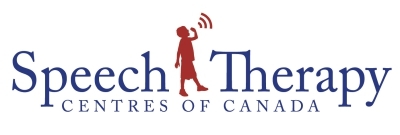
Attention deficit hyperactivity disorder, or ADHD, is a condition that is marked by issues with executive functions. Symptoms of ADHD include hyperactivity, an inability to pay attention, and issues with impulse control. If your child has been diagnosed with ADHD, you know how difficult it can be for them to multi-task, settle down, or get much of anything done, all of which can be frustrating for both parent and child.
Often times children with ADHD struggle in school. This is because they may have trouble prioritizing and focusing on their tasks. Getting in the study zone doesn’t come naturally to them. That’s why learning how to study is as essential as learning the actual material.
Here are 4 essential study tips that will help your child with ADHD succeed in school.
Keep a Running To-Do List
Keeping tabs of what needs to be done will help reduce the stress of remembering task items. Start with a to-do notebook that’s specifically made for task lists (usually found at office supply stores). Older students may prefer a phone or tablet app to do the same. The child can make a running list of things that they need to get done for school, such as homework and tests. Help them note the things they need to get done for the following day, prioritizing the most important items. They should take the notebook with them to school so they can add items to the list as they’re being assigned. As they complete items they can check them off. Being able to visually see their to-do list will help them to stay organized and marking finished items will be very motivating.
Eliminate Distractions
Since children (and adults) with ADHD often have difficulties in processing information, including filtering multiple sources of stimulation (you may notice that when it’s noisy or there’s a lot going on your child is even less able to focus or gets overstimulated). The best thing to do is to eliminate as many distractions as possible which will allow your child to process information one piece at a time. Encourage them to turn off their cell phone, close web browsers or have them work by themselves in a quiet area away from others. It helps some children to focus when there is calming background noise or instrumental classical music playing, so you can try that too.
Focus on One Thing at a Time
Due to their poor organizational skills, many children with ADHD get easily overwhelmed by multiple tasks. A day’s worth of school work can seem like an insurmountable mountain to climb. It can be hard for them to decide what to do first, so they may spend more time thinking about all of their work rather than just digging in. The task list described above will help, as will writing items down in priority order (most important to least important). The next step in the process is to focus directly on the task at hand, putting out of sight—and mind—anything unrelated to the task. Break the job down further by chunking out the elements for that piece of work. For example, if there are 3 pages of math homework, put two to the side and concentrating on getting one done. Once that page is complete, offer a break and then move on to the next page. This technique works well for in-class as well as homework, so discuss the strategies that make sense for your child with their classroom teacher.
Plan Ahead
Since children with ADHD have difficulty organizing and managing stress they can become easily overwhelmed. The best solution is to plan ahead. Consult with the teacher to create a homework schedule and note when larger assignments and projects are due. Work on these items a little bit at a time and when possible avoid the stress of doing it all at the last minute (Sunday night is the best time to put the finishing touches on an assignment, not to run out for craft supplies). Studying for tests in advance by reviewing work daily will help with learning. A good plan includes achievable and measurable milestones that are easily achieved. Don’t forget to celebrate a job well done too!
While ADHD might mean that your child is easily distracted or has difficulty with attending to tasks it doesn’t mean that they can’t achieve success at school. Implementing good strategies to help with focus and organization will go a long way.
A speech-language therapist can help children with ADHD with their individual language, studying and/or social skill goals, as well as work with teachers to ensure the classroom environment is conducive to optimal learning. This includes things like repeating instructions and support of the to-do list. If you’d like to learn more about how a speech-language therapist can help your child with ADHD succeed at school, contact us today.
